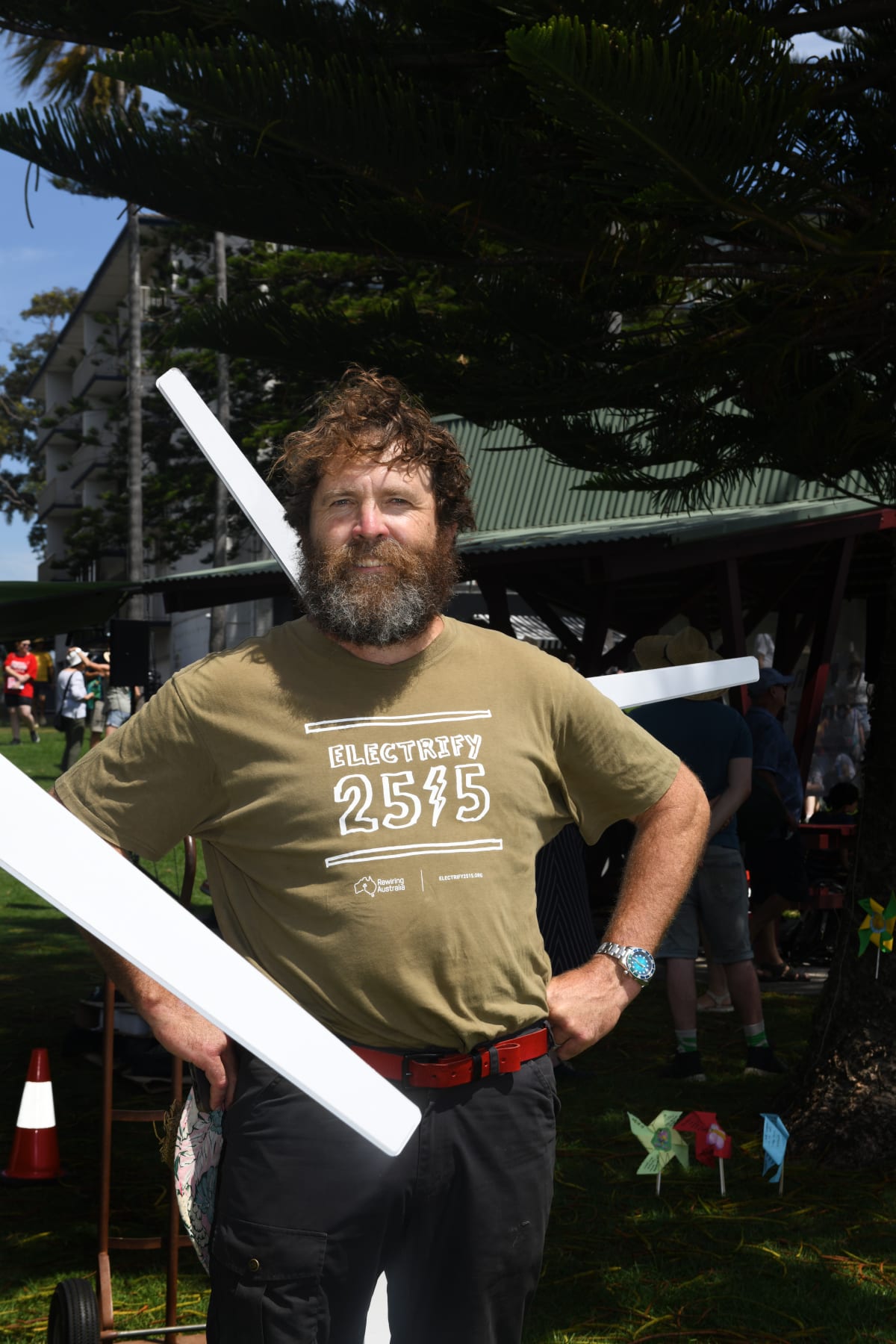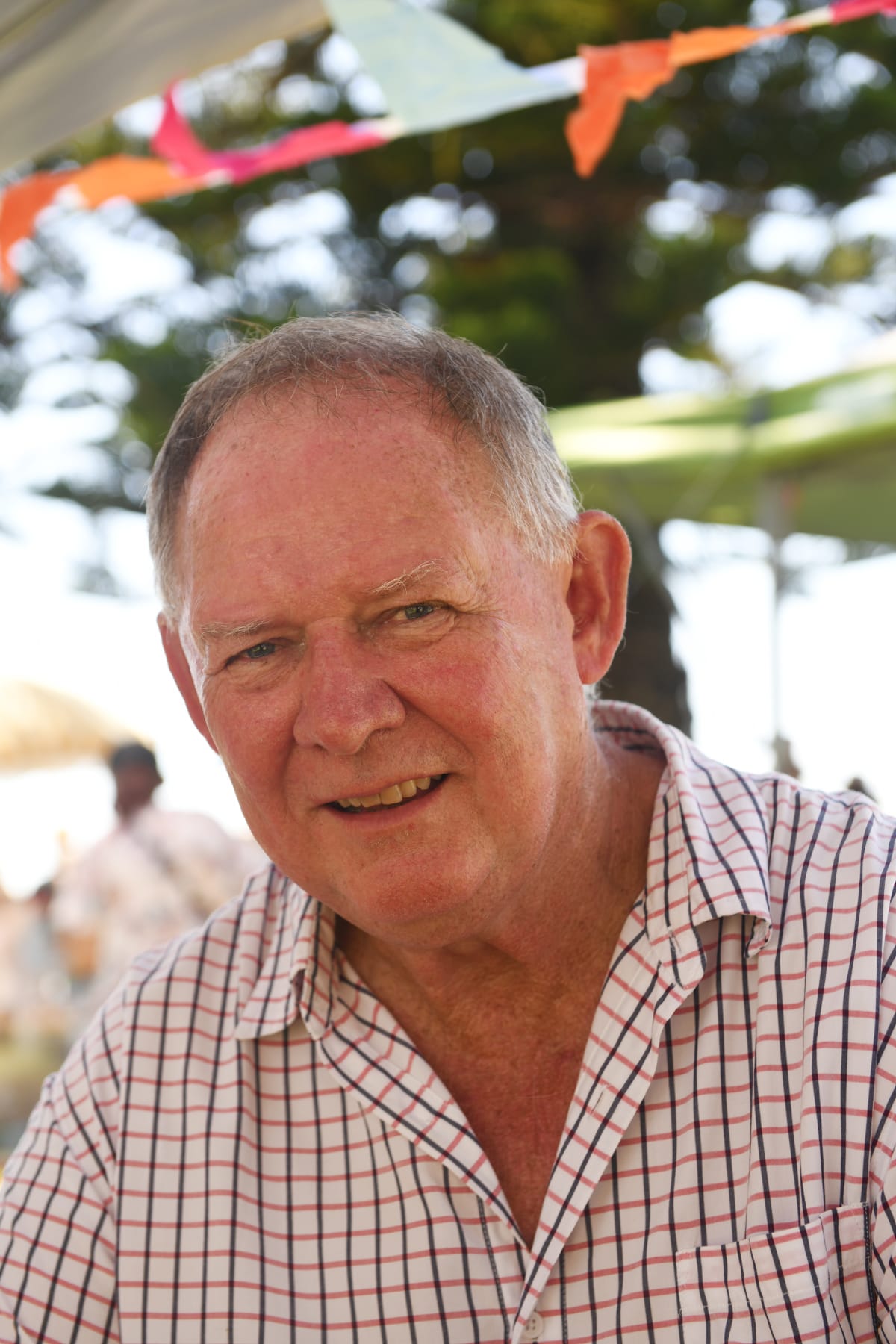Get the scoop on Wollongong's Yes2Renewables family fun day
If success could be measured in ice-cream, then Sunday's Yes2Renewables event hit the spot. Organisers of the family fun day at Wollongong's Osborne Park had promised free ice-cream for kids and this proved a powerful attraction as the temperature...

If success could be measured in ice-cream, then Sunday's Yes2Renewables event went down a treat.
Organisers of the family fun day at Wollongong's Osborne Park had promised free ice-cream for kids and this proved a popular attraction as the temperature rose to 31 degrees. Gelato Man Massimo Bernardini served about 370 people, almost double what he’d anticipated, while queues also formed for EV-powered smoothies and Shaved Ice, powered by ebike.
Good for the Gong volunteer Ria Voorhaar said more than 500 people attended Wollongong's Yes2Renewables event, which was held from 11am-1pm on February 4 and encouraged positive conversations about climate action, renewables and the energy transition.
The day's hosts were the Friends of the Earth in alliance with Good for the Gong, the Australian Conservation Foundation, Electrify 2515 and other local organisations, including Flame Tree Co-op, Illawarra Knitting Nannas and Hi Neighbour, the not-for-profit founded by actor Yael Stone to help local workers upskill for renewable jobs.
Visitors spoke to volunteers at marquees and scientists at the University of Wollongong stand, where about 70 community members completed a short survey. Thirroul's Go Create Art studio owner Imogen Ross helped run craft sessions for kids, there were renewable energy art installations and music by the Rising Tide Street Band. Labor politicians Alison Byrnes, Paul Scully and Stephen Jones attended.
Yuin Dharawal Elder Mark Bloxsome opened the event with a Welcome to Country, followed by a series of speeches for an audience who sat on a lawn overlooking the stage and the sea.
Jobs in renewables were a stand-out feature of the day’s discussions.
After his speech, Austinmer engineer Dr Saul Griffith, founder of Rewiring Australia, responded to an audience member's question about jobs and offshore wind turbines, saying: “The huge driver of jobs in this project will be making steel. There'll be about 3000 tons of steel in each 15-megawatt turbine.”
As well as jobs in making green steel, there would also be work in turbine installation, maintenance and repairs, he told the crowd.
"What's often not understood is you create a small number of jobs in the local steel mill and you create a huge number of jobs in the local environment.”
This could mean more jobs for everyone from caterers to teachers.
“What's also under-appreciated,” he added, “is this is enabling us to electrify our cars and it's enabling us to electrify our households. And that creates a huge number of jobs in your community – that’ll be tradies, installing the solar, putting the battery on your house and putting the vehicle charger in, electrifying your kitchen…
“What's really going to happen here is an extraordinary reorientation of energy economics. So right now, an average family in Wollongong spends about $3000 or $4000 a year on petrol or diesel – that leaves this community instantly – doesn't create any jobs, or creates one job at the local servo, but that's selling you nicotine and sugar, so three things that can kill you in one place.
“But if we are instead providing that electric car with wind power from the locally produced steel, we're providing it with solar from local rooftops, then that $3000 stays in this community …
"If we fully take on this project of decarbonisation, we can actually expect a huge economic boom here.”

Speaking on behalf of the young people in the Tomorrow Movement and the Australian Youth Climate Coalition, UOW law graduate Luke Gelder expressed their support for jobs in renewables.
“Tomorrow Movement’s main goal is called a Climate Jobs Guarantee which asks for good jobs, action on climate change and the community having a say,” Luke told the crowd.
“Not only could clean energy underlie our grid from different sources but we could ensure local jobs such as the manufacturing of green steel in BlueScope and conditions on the developers that mean community funding. So not only can I be happy that finally Australia is doing something, I can maybe pay off my HECS debt.”

Hi Neighbour team member Darryl Best shared insights from his career as a coal miner.
“I worked in an industry where job losses and mine closures are common,” Darryl said. “I know what effect this has on the workers, their families and communities. It is devastating. I have experienced this personally at two mines. It is not an easy thing to cope with. In the past there were other mines opening. That is not the case now.
"Locally there have been lay-offs at Russell Vale, whilst Dendrobium is slated to close towards the end of this decade. There isn’t an abundance of jobs for these workers to adapt their skills towards.
“That is why it is so important that we transition to renewables as soon as possible.”
Darryl’s words were rendered even more poignant when Wollongong Resources announced via an email to staff on Monday, February 5, that Russell Vale Colliery would close. More than 100 workers were reported to be affected.





